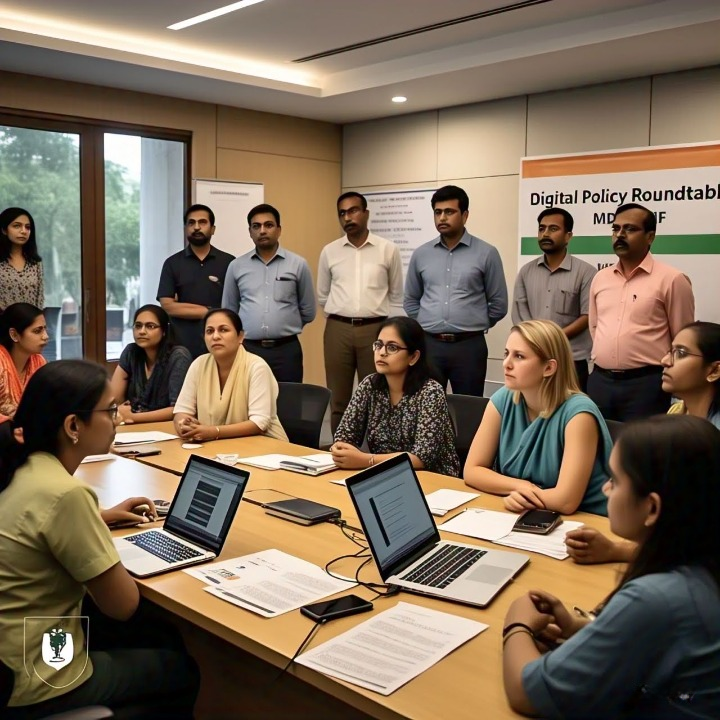We act as a bridge between citizens and policymakers, helping governments, institutions, and industry craft digital policies that are people-first, privacy-centered, and future-ready.

Cybersecurity for Citizens
What We Recommend:
- Mandatory security audits for public-facing apps (esp. in fintech, edtech, and govtech)
- A standardized “Safe App” certification system
- Publicly funded cybersecurity education at school and college levels
- Clear digital grievance redressal mechanisms under DPDPA and cyber law
- Strengthening legal action against scam platforms and digital impersonation (deepfakes, frauds)
Digital Access & Inclusion
What We Recommend:
- Digital literacy programs made mandatory at the panchayat and municipality levels
- Free or subsidized smartphone + data schemes for students, women, and gig workers
- Local language tech interfaces and accessibility-first digital design in all e-governance platforms
- Public-private partnerships to build “Digital First Mile Access” zones in underserved regions
Tech Sustainability & Digital Waste Management
What We Recommend:
- Mandatory e-waste collection drives for urban local bodies, with manufacturer participation
- Energy efficiency benchmarks for public data centers and digital infrastructure
- Green coding guidelines and digital minimalism practices for government software tenders
- National campaign on “Digital Declutter” and sustainable tech usage
Digital Safety in Education
What We Recommend:
- Guidelines for safe use of edtech platforms and student data protection
- Training for teachers in safe online class practices
- Age-appropriate digital literacy curriculum across all school boards
- Regular school-level cybersecurity drills and digital abuse reporting systems
Responsible Use of Emerging Technologies (AI, Deepfakes, Blockchain)
What We Recommend:
- Strong legal framework to prevent non-consensual deepfake generation and sharing
- Mandatory watermarking or traceability for AI-generated content used in media and advertising
- Support for ethical AI development with bias audits and explainability standards
- National advisory councils that include civil society, academia, and tech experts to review AI deployment in public systems
